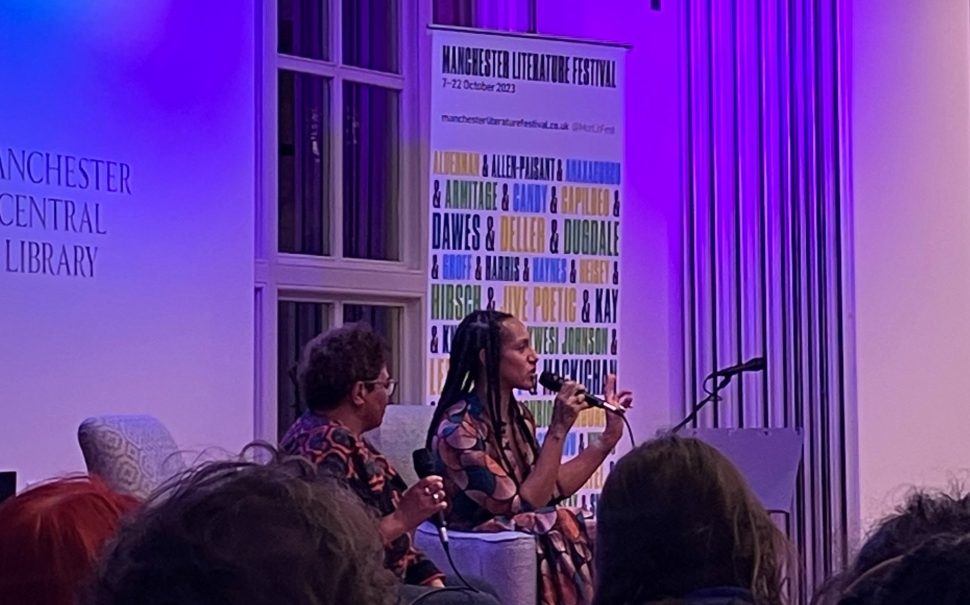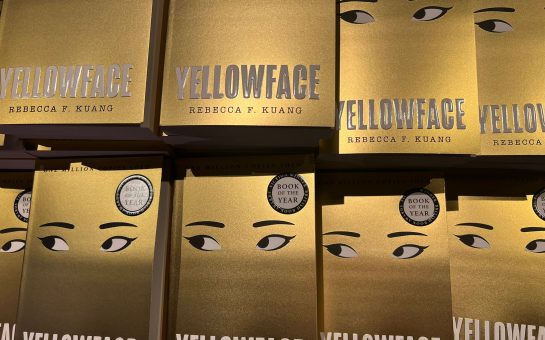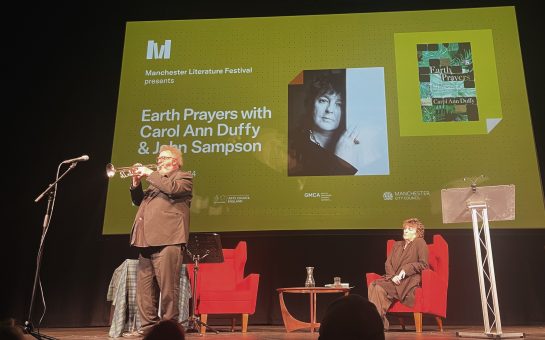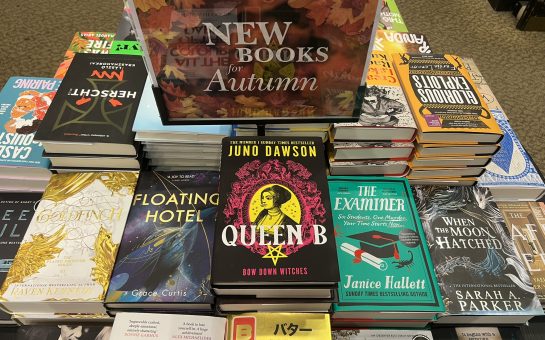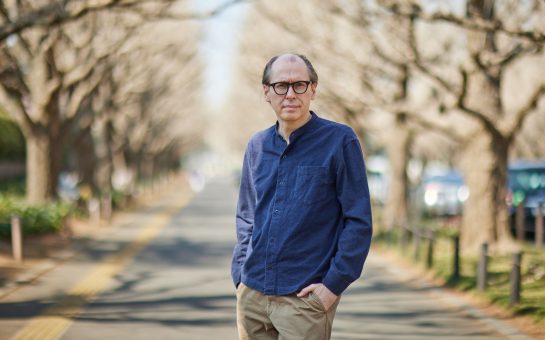Writer and broadcaster Afua Hirsch took to the Manchester Literature Festival to discuss her highly acclaimed new book, Decolonising My Body.
The talk was hosted by poet and MLF patron in Manchester’s Central Library as part of the 18th edition of the festival.
Her book dissects Eurocentric beauty standards, attitudes towards ageing and body modification rituals, and advocates for reconditioning ourselves and connecting with our ancestral heritage to reach our most authentic selves.
Hirsch said: “We must understand how we got here, look at what we lost, and choose ourselves what to reclaim.”
The event started with a short extract from the book’s introduction, immersing the audience within the context of Hirsch’s work.
She began writing the book after turning 40 and was motivated by considering what practices she wanted her daughter to grow up learning that she had never been taught during her own childhood.
“I write for the younger woman who was trying to navigate life but did not have the knowledge or the tools,” Hirsch said.
Hirsch spoke incredibly eloquently while bringing a real warmth to the room which helped to inspire the audience to reevaluate the ways they view themselves and their bodies.
Attitudes towards her own body growing up were strongly influenced by cultural norms set up by the beauty industry and media representation, resulting from the ‘violence of colonialism’, and causing a toxic conditioning.
She said: “I hadn’t interrogated my own conditioning.
“I hadn’t been making my own choices because I hadn’t been seeing.”
Hirsch was raised in Britain and has Ghanaian heritage, but she has always felt a disconnection from her ancestral lineage.
“I am very racialised in Britain but afraid of taking up space in Ghana as I can’t speak the language.”
She is now embracing being ‘unapologetically Black’, and encourages others to be curious about their heritage, believing that knowledge is lost from forgetting about Indigenous history.
Similarly to her previous book, Brit(ish), which examines racial identity, her new work interrogates the past in order to inform and change the present, and Hirsch provided us with plenty of history.
She delved into the historical context of Black women’s tattooing and pioneering practices and how they celebrated ageing and reaching milestones.
Our culture ‘glorifies youth’ and Hirsch explained how these tattooing practices reminded women to embrace rather than fear ageing.
Hirsch has been heavily influenced by the works of Alice Walker and Audre Lorde, and she commended the vast body of Black female writing which offers us a plethora of knowledge if we only seek it out.
“This book is a love letter to other writers,” she commented.
Hirsch invited the audience to ask her questions while encouraging those who have not yet read the book to buy themselves a copy and embark on their own journey of re-conditioning.
This is the last weekend of the festival which ends 22 October but there will be more “Bookend” events during November. Tickets and more information are available here.
